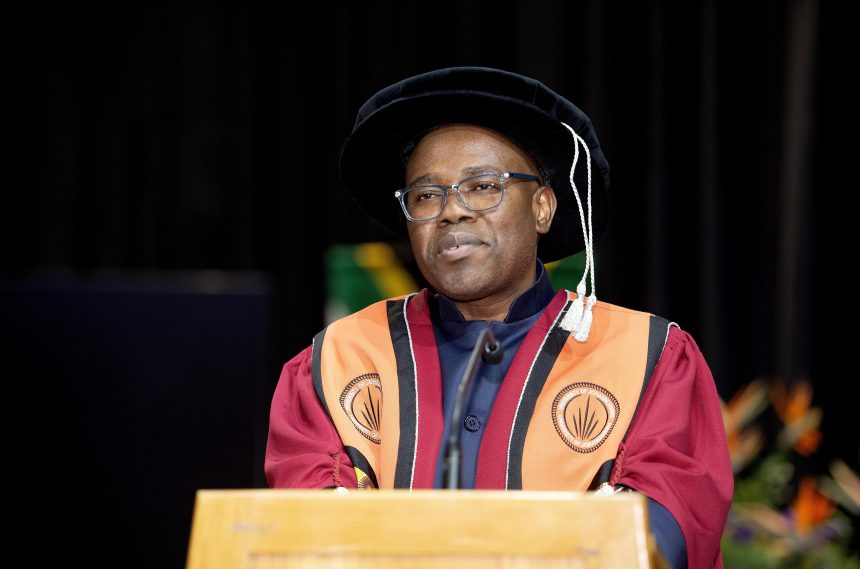Professor of Law and Vice Chancellor of the University of Johannesburg, Professor Letlhokwa George Mpedi has indicated that there must standards put in place to regulate how the use of artificial reproductive technology is deployed in our societies in order to ensure ethical and legal compliance in contemporary times.
The call comes on the back of the University of Professional Studies,Accra holding a public lecture and book launch to aid the advancement of academic discourse in shaping public policy.
The well attended event drew a large participation from faculty,students and a cross section of the general public came off on Friday , June 30,2023.
The theme of the public lecture was on the topic ” Artificial Reproductive Technology ; Ethical and legal considerations through an African Prism”.
The public lecture was under the distinguished patronage of the Vice Chancellor of the University of Professional Studies, Accra , Professor Feehi Okoe Amartey .
Speaking at the event, the Guest Speaker, Professor Letlhokwa Mpedi was of the view that the concept of artificial reproductive technology must have standards to regulate it effectively in today’s fast paced world where scientific discoveries are at the forefront of human civilization and advancement.
” Artificial reproductive technology is a complex phenomenon in today’s world , and as a matter of urgency, it takes various shapes and forms which brings about a lot of legal and ethical considerations which society must seek to redress in order not to get persons who patronize the technology to misuse it and create problems for society.
The adoption of standards to keep a check on how the technology is deployed will go a long way to restrict how certain groups of people will try to use innovation to abuse people’s rights and freedoms in the practice of science as a means to ease societal challenges”.
Also, Professor Mpedi reiterated the need for governments across the world and in particular on the African continent to be deliberate in crafting relevant legislation that pre empts and limits the subtle damage , fast changing scientific innovations may have on the natural order of progress in societies.
He added that there must be a careful mechanism or steps put in place by countries to get the best out of scientific innovations whilst protecting the interests of their citizens as a whole.
” In today’s fast paced world , where science is the optimum vehicle for sustainable development and economic welfare, countries through their law making chambers must be awake to the times and focus on using legislation as a means of checking excesses of scientific discoveries on the lives of citizens.
Issues of fertility and health related conditions and how families procreate are still within the remits of inalienable human rights , but nations must thread cautiously on how far scientific innovations like artificial reproductive technology does not leave lingering ethical and legal consequences that can impede the natural progress of things in their countries”.




